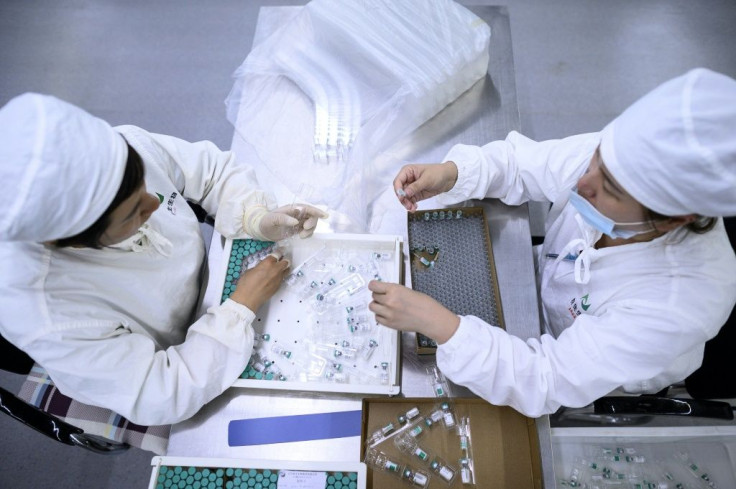Coronavirus Vaccine: Panel Of Experts To Determine Who Gets Vaccinated First In The US
KEY POINTS
- Coronavirus vaccine distribution will be determined by a panel of experts, who won’t be from government
- National Institutes of Health Director Dr. Francis Collins is working with various agencies for the guidelines of ethical vaccine distribution
- This is in response to Trump’s Operation Warp Speed that aims to deliver 300 million coronavirus vaccine by January 2021
A panel of experts, who will not be from the U.S. government, will likely be tasked to determine who gets the coronavirus vaccine first.
National Institutes of Health (NIH) Director Dr. Francis Collins told a Senate panel in a hearing on vaccine development, Thursday (July 2), that his agency is working with other agencies, such as the Centers for Disease Control and Prevention (CDC) and the National Academy of Medicine, to establish an advisory committee for ethical vaccine distribution. Collins said that they are aiming to have the group and the guidelines sorted out by Labor Day (Sept. 7).
"We think that might be something best done, in a circumstance, by an organization that is not itself governmental," Collins told the senators. "Because it's still the case, I think, that people are a little uneasy about the government calling the shots here."
This committee will also need to ensure that the vaccine reaches the vulnerable sector with higher infection and death rates, such as the elderly, as well as the Black and Hispanic residents of the U.S.

Current CDC guidelines show that the first ones who could receive any vaccine, which may be short in supply, are public health frontline and essential workers, law enforcement workers, vaccine manufacturers, pregnant women, and toddlers. The last group to get vaccinations are healthy individuals between the ages of 19 to 64.
The Trump administration launched Operation Warp Speed, in early June, with a goal of delivering 300 million coronavirus vaccine by January 2021. Essentially, the president wants to cut the process of vaccine development, which normally takes at least five years.
Sen. Patty Murray of the Senate Appropriations Subcommittee on Labor, Health and Human Services, Education, and Related Agencies said that the Trump administration should come up with a comprehensive plan to ensure that the coronavirus vaccine is safe, effective and widely available for free to anyone in the U.S. It must also be able to address the health disparities and disadvantages highlighted by this pandemic.
© Copyright IBTimes 2024. All rights reserved.





















